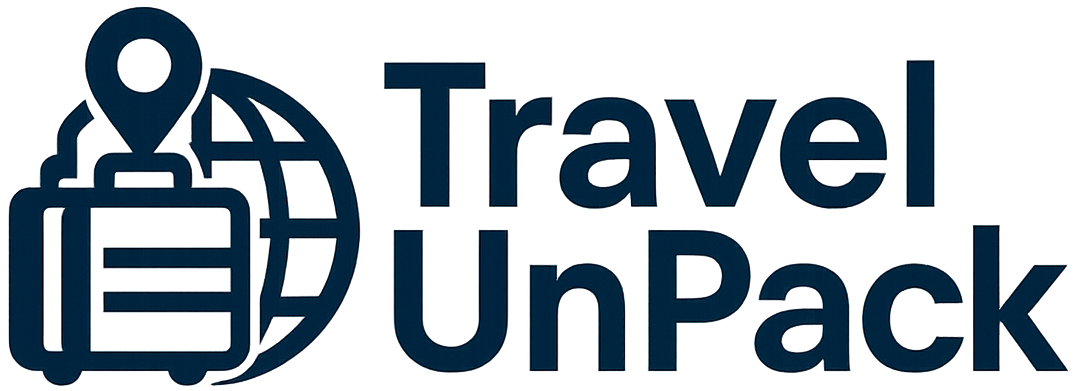The nursing technician course is one of the most sought-after courses in the health field, offering a combination of theoretical and practical knowledge that prepares students to work in various areas of the sector. This article details everything about the course, from its structure to the free options available in Brazil. At the end, you'll find a FAQ to answer the most common questions on this subject.
What is the Nursing Technician Course?
The nursing technician course is a professional education program that trains students to work as nursing technicians. The nursing technician is a mid-level health professional who works under the supervision of nurses, doctors and other professionals in the field. Their main function is to assist patients in hospitals, clinics, health units and homes.
This course is essential for those who want to enter the healthcare job market quickly, as it usually lasts two years. During the course, students learn how to administer medication, perform dressings, assist with medical examinations and procedures, as well as develop relationship skills with patients and their families.
The training is divided into theoretical and practical modules. The theoretical modules cover topics such as anatomy, physiology, microbiology and pharmacology, among others. The practical part is carried out in laboratories and in the field, in supervised internships, where students have the opportunity to apply what they have learned in the classroom.
Importance of the Nursing Technician in the Health System
Nursing technicians play a critical role in the healthcare system, being the front line in patient care. They ensure that basic care is effective and humanized, acting directly on patients' comfort and recovery. This role is especially important in places where there is a shortage of healthcare professionals.
In addition, nursing technicians are essential to the management of care. They are responsible for monitoring vital signs, preparing patients for tests, assisting in surgical procedures and ensuring that all health protocols are followed. Their presence frees up nurses and doctors to focus on more complex diagnoses and treatments.
The demand for nursing technicians is high and continues to grow, mainly due to the ageing population and the increase in chronic diseases. This reality means that the job market for these professionals is promising, with many job opportunities in various regions of the country.
Technical training in nursing not only qualifies you for the job market, it also provides a competitive edge. The experience gained during the course is invaluable for those who wish to continue their studies in nursing, providing a solid basis for developing future skills.
Structure of the Technical Nursing Course
The technical course in nursing is structured to ensure a complete and comprehensive education. The workload generally varies between 1200 and 1800 hours, depending on the educational institution. This time is distributed between theoretical classes, practical classes and supervised internships.
The theoretical modules cover fundamental subjects for understanding the human body and its pathologies. Among the main subjects are: Anatomy and Physiology, which studies the structure and functioning of the human body; Microbiology and Immunology, which focuses on the study of micro-organisms and the immune system; and Fundamentals of Nursing, which introduces basic patient care techniques.
Practical classes are held in laboratories equipped with mannequins and equipment that simulate real hospital conditions. This stage is crucial for developing technical skills, where students learn how to handle medical equipment, administer injections, perform dressings and other essential techniques.
The supervised internship is a compulsory and essential stage of the course. During the internship, students are placed in real working environments, such as hospitals and clinics, where they have the opportunity to apply their knowledge under the supervision of experienced professionals. This direct contact with the reality of the job market is fundamental for the development of practical skills and for the training of a competent and safe professional.
Requirements and Registration for the Technical Nursing Course
To enter a technical course in nursing, candidates need to meet some basic requirements. The main one is to have completed high school or be in the process of doing so. Some institutions may also require you to pass a selection process, which may include a general knowledge test, an essay or an analysis of your academic record.
Applications for the course can be made directly to the educational institutions. The process often begins with online registration, where candidates fill in their personal and academic details. After registering, it is important to pay attention to the deadlines and documents required for enrollment.
It is advisable to check that the educational institution is recognized by the Ministry of Education (MEC). Choosing a recognized school guarantees that the diploma obtained at the end of the course will be valid and recognized throughout the country, which is essential for practicing the profession.
For those looking for free opportunities, government programs such as the National Program for Access to Technical Education and Employment (Pronatec) offer technical courses in nursing free of charge. Pronatec aims to expand the range of professional and technological education courses on offer and can be an excellent option for those who wish to gain qualifications but cannot afford a paid course.

Free Technical Nursing Course Options
Several institutions offer technical courses in nursing free of charge, especially through government programs. Pronatec, mentioned earlier, is one of the main sources of free courses in Brazil. It offers a wide range of technical courses, including nursing, in various cities across the country.
In addition to Pronatec, some state and federal technical schools offer the course free of charge. Institutions such as the Federal Institutes of Education, Science and Technology (IFs) offer vacancies for technical courses in various areas, including nursing, free of charge. These institutions are known for the quality of their teaching and the high employability rate of their graduates.
Another option is philanthropic institutions, which offer technical courses free of charge or at reduced prices. Organizations such as the National Commercial Learning Service (SENAC) and the National Industrial Learning Service (SENAI) often offer scholarships and partnerships that allow access to technical education at no cost.
To register for free courses, it's important to be aware of the deadlines and requirements of each program. Places are usually limited and competition can be high, so it is advisable to do your research constantly and prepare the necessary documentation in advance.
The job market for nursing technicians
The job market for nursing technicians is vast and promising. Healthcare is a sector that is constantly expanding, and the demand for qualified professionals is growing every year. One of the main reasons for this is the ageing population, which increases the need for health care and, consequently, the demand for nursing technicians.
Nursing technicians find job opportunities in a variety of settings, including hospitals, clinics, basic health units, home care and occupational health companies. In hospitals, they can work in various sectors, such as the emergency room, ICU, pediatrics, among others. In clinics, they can work in diagnostic and treatment areas.
The salary of a nursing technician can vary depending on the region and the type of institution in which they work. However, it is important to note that, in addition to the salary, the profession offers stability and the possibility of professional growth. Many nursing technicians choose to continue their studies and become nurses or specialize in specific areas, such as surgical instrumentation or occupational nursing.
The profession also offers the possibility of working in public health programs and campaigns, which are often promoted by governments and NGOs. These initiatives can include vaccination, disease prevention and health promotion in underprivileged communities, further broadening the field of work for nursing technicians.
Tips for Choosing the Best Technical Nursing Course
Choosing the right technical nursing course is fundamental to guaranteeing quality training and a good place in the job market. First of all, it is essential to check that the institution is recognized by the MEC, which ensures that the diploma is valid. It's also worth researching the school's reputation and the opinions of former students.
Another important point is to analyze the structure of the course. Check that the workload is adequate and that the course offers a good balance between theory and practice. Supervised internships should be an integral part of training, as they are essential for practical learning. Find out if the institution has partnerships with hospitals and clinics for these internships.
The school's location and infrastructure are also factors to consider. Choose an institution that is easily accessible and offers good study conditions, such as equipped laboratories, a library and audiovisual resources. A quality learning environment makes all the difference to professional training.
Finally, evaluate the networking and professional development opportunities offered by the course. Courses that promote job fairs, lectures and workshops with professionals in the field can greatly enrich your training, providing valuable contacts and access to up-to-date information on the job market.
Conclusion
The nursing technician course is an excellent choice for those who want to enter the job market quickly and efficiently. With a solid and comprehensive education, you can work in various areas of health and contribute to improving people's quality of life. What's more, with the many free options available, access to this training is becoming increasingly democratized. We hope this article has clarified your doubts and helped you decide the next steps in your nursing career.
FAQ
1. What do I need to take a technical course in nursing?
- You must have completed high school or be in the process of doing so. Some institutions may require a selection process.
2. Is the technical nursing course free?
- There are free options, mainly through programs such as Pronatec, state and federal technical schools.
3. How long does the nursing technician course last?
- The duration varies between 1,200 and 1,800 hours, which generally corresponds to two years.
4. What are the main subjects on the course?
- Anatomy, Physiology, Microbiology and Fundamentals of Nursing are some of the main subjects.
5. Where can a nursing technician work?
- In hospitals, clinics, health units, home care and occupational health companies, among others.
6. What is the average salary for a nursing technician?
- The salary may vary, but it offers stability and opportunities for professional growth.
7. Does the technical nursing course have an internship?
- Yes, the supervised internship is a fundamental part of the course.
8. Can a nursing technician go to university?
- Yes, many technicians choose to continue their studies and become nurses.
9. How do I choose the best technical nursing course?
- Check MEC recognition, course structure, location and networking opportunities.
10. What is Pronatec?
- The National Program for Access to Technical Education and Employment offers free technical courses in various areas.
11. What does a nursing technician do?
- Administers medication, performs dressings, assists with exams and medical procedures.
12. Is there a minimum age to take the technical nursing course?
- The minimum age is usually 18, but this can vary depending on the institution.
13. Are technical nursing courses recognized in the market?
- Yes, especially if they are offered by institutions recognized by the MEC.
14. What are the practical lessons like?
- They are carried out in laboratories with simulations of hospital conditions, as well as supervised internships.
15. Can I take the technical nursing course online?
- The theoretical part can be offered online, but the practical ones require physical presence.



